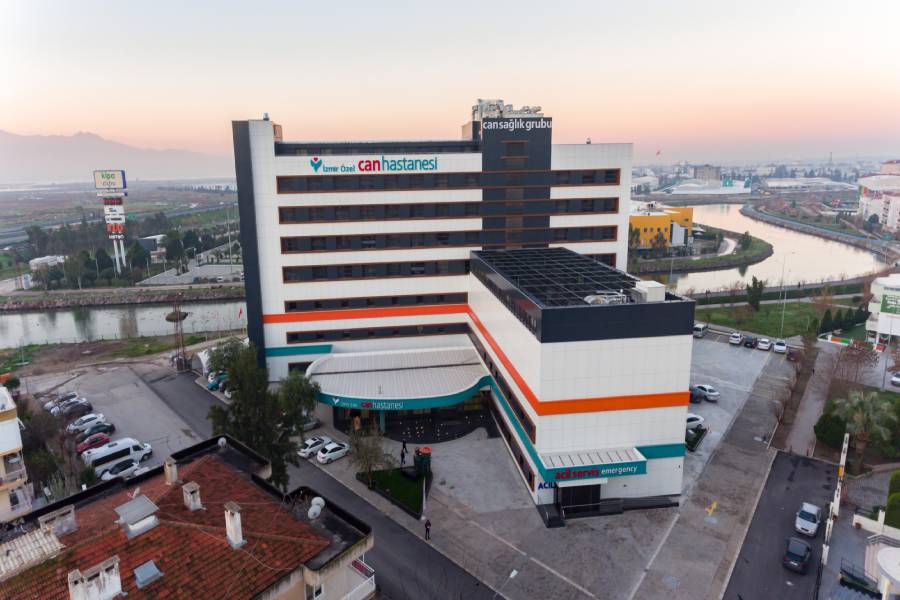What is the best position to sleep after hernia surgery?
Categorised in: Genel, HEALTH GUIDE
Published Date:
Recovering from hernia surgery necessitates meticulous rest and care. Opting for the most suitable sleeping positions can profoundly influence your comfort and healing trajectory. At Can Hospital in Izmir, our seasoned medical team underscores the critical role of post-operative sleep positioning in facilitating a smoother recovery.
Post-hernia surgery, it is imperative to minimise pain and support the healing process during sleep. Identifying the optimal sleeping positions is essential for a more comfortable and restful recovery. By aligning your sleep posture with your body’s needs, you can expedite healing and diminish the likelihood of complications.
In the subsequent sections, we delve into the significance of appropriate sleep positioning post-hernia surgery. We offer insights into the best positions for optimal recovery. Additionally, we share expert advice from Can Hospital in Izmir to guarantee restful sleep throughout your post-operative journey.
What is Hernia Surgery Recovery?
The journey towards recovery post-hernia surgery is a nuanced process, demanding both patience and meticulous adherence to post-operative care protocols. The duration of hernia surgery recovery is contingent upon the specific type of hernia and the surgical methodology employed. Generally, patients can anticipate a return to their pre-surgical activities within a few weeks. Nonetheless, the full recuperation period may extend over several months.
Adherence to your surgeon’s post-operative care directives is paramount during the initial recovery phase. These may encompass restrictions on physical exertion, wound maintenance, and pain management strategies. Engaging in brief walks and performing light activities can foster circulation and mitigate risks of complications such as blood clots.
Optimal sleep positioning is a critical factor in the hernia surgery recovery trajectory. Adopting the correct sleep posture can significantly reduce discomfort, alleviate strain on the surgical area, and expedite the healing process. It is imperative to eschew positions that exert undue pressure on the incision or induce pain.
As you navigate through the recovery stages, a gradual escalation in activity levels is advisable. Nonetheless, it is imperative to heed your body’s signals and avoid excessive exertion. Should you encounter persistent pain, swelling, or other alarming symptoms, seek immediate counsel from your healthcare provider.
It is essential to acknowledge that each individual’s recovery path is distinct. Adherence to your post-operative care regimen and adjustments to your sleep posture can significantly bolster your body’s inherent healing capabilities. This approach will facilitate a smoother recovery from hernia surgery.
Importance of Proper Sleep Positioning
Proper sleep positions are vital for hernia surgery recovery. The right sleeping posture can greatly reduce pain, decrease pressure on the surgical area, and enhance healing. Patients who have had hernia surgery at Can Hospital in Izmir or elsewhere should focus on finding a comfortable, supportive sleep position.
In the early stages of recovery, it’s crucial to avoid putting strain on the incision. Sleeping in a way that stresses the surgical site can cause discomfort, slow healing, and increase the risk of complications. By choosing a sleep position that supports the body and ensures proper rest, patients can aid in a smoother, more efficient recovery.
Additionally, proper sleep positioning aids in managing post-operative pain and swelling. Elevating the affected area while sleeping can enhance circulation, reduce inflammation, and ease discomfort. This can be achieved through the use of pillows or adjustable beds to find the most comfortable, supportive position for each patient’s needs.
Seeking advice from healthcare professionals, such as those at Can Hospital in Izmir, can offer invaluable guidance on the best sleep positions. They can provide tailored recommendations based on the type of hernia, surgical method, and individual recovery progress. By adhering to these expert suggestions, patients can improve their sleep quality and hasten their hernia surgery recovery.
Best Sleeping Positions After Hernia Surgery
Post-hernia surgery, the quest for optimal sleep positions becomes paramount for a serene recovery. Back sleeping, with the head and shoulders slightly elevated, is often advocated. This stance minimises tension on the surgical area and enhances blood flow. Employing pillows to support the upper body is crucial, ensuring a gentle slope that avoids undue abdominal pressure.
Side sleeping, particularly on the non-operated side, is also deemed beneficial. Inserting a pillow between the legs aids in hip alignment and reduces pressure on the incision. This method prevents unnecessary strain on the surgical site during slumber.
Adapting to your body’s signals is vital, regardless of the chosen position. If discomfort arises, consider altering your posture or adding extra pillows for support. As your recovery advances, you can gradually revert to your preferred sleeping orientation.
It’s important to note that the journey to discover the most suitable sleep positions post-hernia surgery is unique to each individual. Seek counsel from your healthcare professionals at Can Hospital in Izmir. They will offer bespoke recommendations based on your unique needs and recovery trajectory.
Tips for Comfortable Sleep
Attaining a restful night’s sleep is paramount for a seamless hernia surgery recovery. Employing additional pillows to bolster your body and mitigate pressure on the surgical area is advisable. Positioning a pillow under your knees when supine or between your legs when prone can diminish strain and foster optimal alignment.
Establishing a sleep-conducive environment is equally vital. Opt for a cool, dark, and silent bedroom to cue your body for rest. If discomfort or pain persists, manage it with prescribed medications as advised by your physician. However, it’s prudent to seek medical counsel before introducing any new medications during your convalescence.
Practising relaxation techniques prior to bedtime can significantly enhance sleep quality. Engaging in deep breathing exercises, gentle stretching, or listening to calming melodies can soothe your mind and body, facilitating a smoother transition into slumber. Remember, prioritising a comfortable sleep environment is crucial for supporting your body’s healing and ensuring a successful hernia surgery recovery.

Why British Citizens Choose Turkey for Health Services?
British citizens are increasingly opting for Turkey when seeking medical treatments due to a combination of superior healthcare services, affordability, […]

Psychological Effects of Genital Aesthetics on Body Image
In a society increasingly focused on physical perfection, the realm of genital aesthetics has surfaced as an area of both […]

Common Concerns About Genital Plastic Surgery
Genital plastic surgery, a burgeoning field within the realm of cosmetic enhancements, has witnessed a notable surge in popularity. Procedures […]

In which cases is labiaplasty necessary?
Labiaplasty, a procedure that has recently garnered significant attention, involves the surgical reduction of the labia minora. This operation, also […]

Healthy Recovery Process After Genital Aesthetic Surgery
Day Things To Do Things to Avoid 1-7 Days – Bed rest – Using medications recommended by the doctor – […]